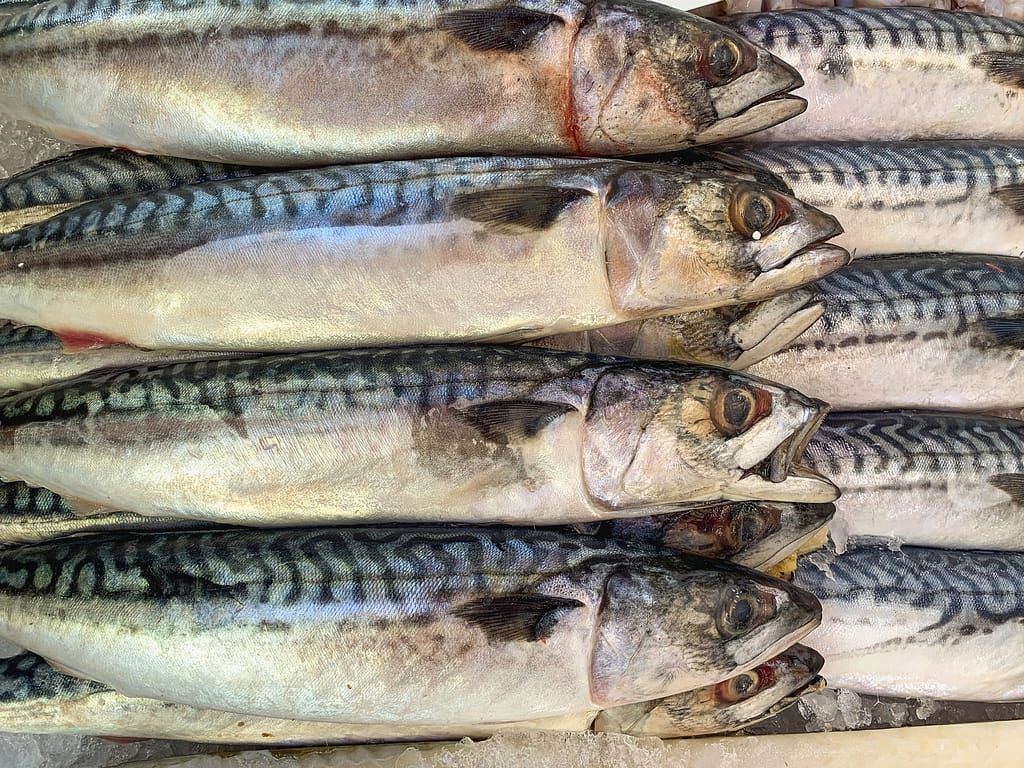
I’m a pescatarian. I don’t eat meat but I do eat fish. I also eat eggs and some dairy. I’ve eaten this way for most of my adult life. Not eating meat is healthier, more humane and better for the environment.
My dietary upbringing
I was raised in a traditional meat and potatoes family. Both my parents were from farming families, and I grew up in a small agricultural town in northern Alberta.
My upbringing was traditional, but it was also perhaps a bit unusual because our life was still so connected to the farms around us. We always had a large garden and organic vegetables were a major part of most meals. We often obtained meat from local farmers, and, although my father wasn’t a hunter, we sometimes ate duck, venison and fish that we obtained as gifts or in trade.
Expanding my palate
My appreciation for food expanded greatly when I moved to Vancouver as a young man. It was easy to satisfy my intrinsic interest in novel food experiences in this vibrant multi-cultural city.
Chinese restaurants were plentiful and mostly inexpensive. I loved the quick and direct approach of Chinese cuisine, and I liked the emphasis on fresh vegetables. I also learned the benefits of small portions of meat, poultry or fish. I even took a Chinese cooking course and gained a lot of confidence in my cooking abilities when I applied the lessons to making meals for my family and friends.
When I started making a little money, we explored cuisines from other cultures — Italian, Indian, Greek, Mexican, Thai and others. I also became more aware of seafood options and incorporated more fish, squid and other seafood into my eating and cooking.
Trying vegetarianism
As part of a generally more thoughtful and deliberate approach to our life, my wife and I became vegetarians for a year or two in the early seventies. We understood that the vegetarian diet was healthier. I also didn’t like the idea that sentient animals must be killed to provide me with meat. We liked our new lifestyle but found it difficult to maintain, largely because we didn’t have the knowledge and skill to make enough appealing and nutritious meals.
However, this brief dip into vegetarianism reinforced my love of plant focused menus. Furthermore, I realized that I really wasn’t that enthused about meat, especially beef, and I began to be repelled by the large quantities of animal flesh being served in steakhouses and at barbeques. I also noticed that many men seemed to be stuck in the macho rut of equating eating well with the consumption of large and expensive steaks.
At this time, I became more aware of the terrible conditions that cattle, pigs and chickens endure in industrial farms. These animals are not only killed to provide us with food, but they are tortured for their entire lives as well. I don’t consider myself particularly soft-hearted, but the reality of industrial farming is genuinely horrific.
Adopting a pescatarian diet
With encouragement from my wife and daughter, I embraced the pescatarian way in the early nineties. Adding seafood to a vegetarian diet was important to me due to the protein and other nutrients found in fish and other seafood. Adding seafood to my diet also makes it easier to choose food in restaurants. It also simplifies it for friends and relatives who find it difficult to plan meals that aren’t based on meat.
In addition to being healthier and more humane, a diet without meat is better for the environment. The idea of the substantially higher environmental impact of meat compared with other foods was something I was aware of before, but in the past decade or so I’ve learned that the scale of the difference in the environmental impact of meat compared with most other foods is much greater than I previously understood.
I’ll address the environmental impact of various foods in future posts.
Final thoughts
I’m a pescatarian because it is healthier, more humane and better for the environment. While my health is still an important reason for my pescatarian diet, and I still don’t like the idea of eating animals, my main reason for not eating meat is that it is better for the environment.
Do you understand my journey towards a pescatarian diet? Have I convinced you to join me?

I’m half way there . I do still eat meat , but very sparingly manner. I like a grilled steak once in awhile but while out dining , I much prefer fish . It’s a tasty, lighter meat and I like the idea of eating healthier and doing a small part of reducing animal slaughtering . The cost of raising and producing meat products affects our environment in so many ways , that I could eliminate my taste for meat quite easily. Not to mention that it’s so much healthier to eat seafoods rather than land raised animals.
Overcrowding of livestock promotes the spread of disease among both people and animals, increasing the risk of future pandemics. The overuse of antibiotics to accelerate animal growth and preemptively treat the infections anticipated as a result of living in unclean and overcrowded conditions promotes antibiotic resistance.
This article is a real find! It’s packed with great
and timely info, especially for those of us who are committed to improving our overall health.
I really appreciate how you simplify difficult ideas into practical advice
that’s easy to follow. I’ll definitely be pointing
to this on my blog about diets and nutrition, as I’m sure my readers will find your insights super helpful.
Appreciate you putting together such a valuable post!
Thanks for your comment.